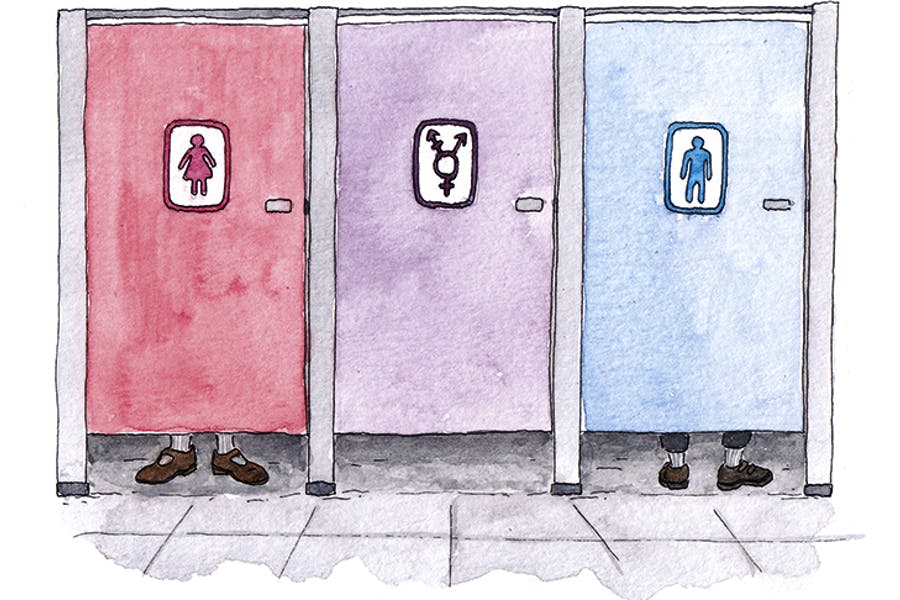Journalists and editors make decisions every day about what stories to report and what to skip. That’s not just because there isn’t enough time, or enough staff, to report on everything. They also prioritise what they, or their publication, believe is most important, or interesting, to their readers. This is especially true for publications with a specific audience, like Edinburgh University’s Student newspaper, where I am editor.
My decision not to report on Adult Human Female, a documentary due to be shown at my university by campaigners and academics who might call themselves ‘gender critical’, sparked something of a backlash. I was labelled a fascist, an enemy of free speech, ‘the Taliban but worse’ – primarily by people with ‘Adult Human Female’, and ‘my pronouns are non/existent’ in their Twitter bios.
Despite the furious reaction, I stand by my decision
Some professional journalists also denounced me. I would never make it in the real world, they said. James Kirkup, a former Student editor, wrote a long piece on Coffee House explaining why he thinks I’m wrong, and inviting me to write here in response.
But despite the furious reaction, I stand by my decision. I was accused of ignoring the film altogether. That’s not true: I simply did not want to report on the documentary in a way that legitimised, or gave space, to its questionable claims. After all, journalists shouldn’t be obliged to report on things that might cause harm to others.
The documentary is described as an investigation into ‘the clash between women’s rights and trans ideology’. That summary suggests that being transgender is nothing more than a belief system and that trans people are apparently undeserving of rights. The rest of the film – which features an uncomfortably long clip of two squirrels copulating – is a 90-minute deep-dive into why transgender people are a threat to society and to women’s rights.
It claims that only those who are born with a female reproductive system are women and that transgender people want to ‘take rights away from other women’.
Such arguments are more than just an ‘uncomfortable opinion’, to use James Kirkup’s phrase. This line of thinking vilifies and dehumanises trans people. It also encourages the perception of trans people as a threat, inciting the risk of violence against them.
Let’s be clear: nobody, regardless of the beliefs they hold on gender, is denying the existence of biological sex. Penises and vaginas aren’t figments of the imagination. But to argue that the difference between the two sexes is based solely on biology dangerously neglects the distinction between sex and gender. Judith Butler’s Gender Trouble, first published 32 years ago, shows that the concept of gender as a fluid and culturally inscribed construct is not new. Yet Adult Human Female rejects this argument – and by reporting and platforming such views, I would be implying that they are somehow acceptable; that there is such a thing as a ‘trans debate’. Put simply, my journalistic principles go beyond such fear mongering and inciting a backlash against a community that is already marginalised.
It was more important instead for our readers to see how our university community can support each other. So I chose to publish a piece on the ‘Trans Solidarity Community Event’ that was set up in response to the screening – at the same time, but at a different location – by the students’ association, in partnership with the university’s staff pride network.
Of course, in hindsight, my decision to refuse to cover the screening of Adult Human Female (that was eventually cancelled anyway) inadvertently made more people aware of the documentary. But I stand by what I did.
I have no issue with people watching the documentary; it’s publicly available to view online. And, contrary to the beliefs of strangers on the internet, I have no interest in censorship. But I do take issue with the documentary being shown on campus under the guise of ‘academic freedom’. Why? Because it falsely implies that the rights of trans people are up for debate.
Platforming harmful rhetoric is not balanced journalism. Equally, it is not ‘bad journalism’ to recognise the moral implications of our actions as reporters and the responsibilities that we therefore must undertake.
Freedom of expression is not freedom from accountability. Hate speech is not protected speech. This is not a political statement but something that every journalist should recognise when they are given the privilege of a platform which can ultimately influence politicians and the public.






Comments